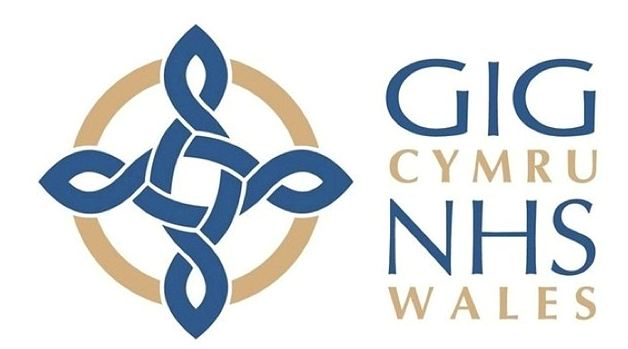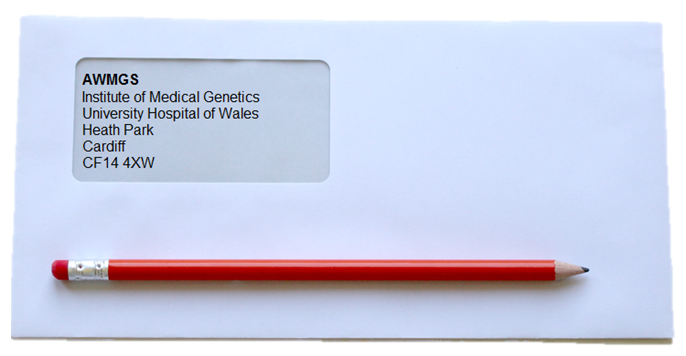![]()
![]()
General
What is a genetic condition?It is a medical condition cause by variants in our genes or chromosomes. Some conditions can run in families, such as cystic fibrosis, sickle cell anaemia, Huntington's disease and BRCA associated cancers. Other conditions such as Down's syndrome do not typically run in families.
|
|
Where can I find out more about my genetic condition?We will provide information about your condition, or the condition in your family, when you attend your genetics appointment. We may also be able to put you in touch with local and national support groups. |
|
Why am I seeing a counsellor?Genetic counselling is understandably a misunderstood term. It is not counselling in the psychological sense, although we are sensitive to the emotional and psychological issues raised during a consultation. Genetic counselling is a process to help you make decisions based on genetic information. Our role is to explain the facts as clearly as possible, helping you and your family to come to individual decisions which are best for your family.
|
|
Are my relatives at risk of having the same genetic condition?Some, but not all, genetic conditions can be passed on in families. The chance of a relative having the condition depends on how that particular change is passed on. Not all genetic conditions are passed on in the same way. At your appointment, or when we give you the results, we will discuss how that particular change is passed on. If you have not been referred to the AWMGS, you may wish to ask the person who arranged the test. If needed, they could then contact us. |
|
Should my children be tested for a genetic condition that is in the family?Some genetic conditions will have health implications during childhood. In this instance, we may discuss the option of genetic testing in a child. However many genetic conditions have fewer or no health implications in childhood and therefore testing is not appropriate. When the child is older and at an age when they can be involved in the decision about having the test, they can seek their own referral. |
|
I have a strong family history of a medical condition, what should I do?You can discuss this with your GP or other healthcare professional. Some conditions, such as heart disease, autoimmune conditions or mental health problems, can be seen more frequently in families but this does not mean that genetic testing will be helpful. Often the chance of developing a medical condition takes into account many different factors, including family history, environmental and lifestyle factors. Your GP will be able to discuss with you whether or not it would be helpful to refer you to the AWMGS. |
|
How long is the waiting list?Waiting lists vary across Wales and so it is difficult to give a time frame in which you will be seen. You will usually be offered appointments in the order you are referred. If there is a reason you need to be seen urgently, you should inform your referring clinician so they can include it in the referral letter. For example, if you or a close relative is pregnant, it would be helpful to let the person referring you know.
|
|
I've moved house or changed my phone number, do I need to let you know?Yes. Please contact us as soon as you are able to and we will update your information on your genetic records. We are not automatically connected to a hospital computer system so changing your address or phone number with your GP or hospital will not inform us of this change.
|
|
I/a relative of mine has a mitochondrial condition. Can I be seen at the AWMGS and do you have any further information?Yes, we regularly see families that have mitochondrial conditions. Sometimes we also refer patients to specialist clinics in England after we have seen them in clinic. More information aimed at families with a history of a mitochondrial condition can be found on the Oxford’s Rare Mitochondrial Disorders Service website.
|
Appointment Information
Can I contact the venue directly about my appointment?
|
 |
Can I change my appointment date or time?
|
 |
What happens if I miss my appointment?If you know you are unable to attend, please get in touch as soon as possible so we can give your appointment slot to somebody else. If you do not attend your appointment without first contacting us, it is possible you will be discharged from the service. If you are discharged and still want to be seen, you will need to ask one of your healthcare team to refer you back to our service.
|
|
What happens if I am late for my appointment?
|
 |
How long will my appointment be?Your appointment will usually last between 30 minutes to an hour. This is so we have enough time to listen to your concerns and take time explaining all of the information.
|
|
What will happen during my appointment?
|
|
What should I bring with me?It may be a good idea to bring information about your family with you. For example, we often ask for dates of birth of family members, or approximate ages, and we normally ask if anyone in the family has any medical conditions. If a family member has previously been seen in a genetic service, any information about them would also be helpful. If the patient is a child, it can be really helpful to bring their Personal Child Health Record, which is also known as the 'red book'. |
 |
Can I bring someone else to my appointment?You are welcome to bring anyone you feel comfortable with to your appointment. In fact we usually recommend that you bring somebody with you as there can often be lots of information to take in and they can give you support. Our clinic rooms are not very big, so you may wish to limit this to 1 or 2 people.Some conditions are hereditary, so information that is useful to you may also apply to other family members. If you would like them to attend then this is fine, however the appointment will be specifically for you and any questions you may have. If your relatives have any concerns, they can seek their own referral. If appropriate you may be offered a joint appointment.In certain cases we may ask you, if possible, to bring a specific relative with you. This is because it may be helpful to discuss testing in this family member first as it can help clarify the risk for the rest of the family. This will always be optional. |
 |
Clinic Venues
Can I have an appointment closer to where I live?
|
 |
Who do I contact if I have questions regarding accessibility at the clinic venue?In many cases your clinic venue will not be run by the genetics service. Parking, transport and accessibility vary across Wales. For specific questions about a location, please see their website or contact them directly.If you feel your assigned venue is not suitable, please contact us using the number on your appointment letter.
|
|
What about venue facilities?Facilities offered will vary according to where the clinic is being held, but in general all locations will have disabled parking close to the entrance, toilet facilities, and a waiting area. In some locations, there may also be a baby changing area, children’s play area and refreshments (vending machines).If you have any particular needs, please do not hesitate to contact us using the telephone number shown on your appointment letter. |
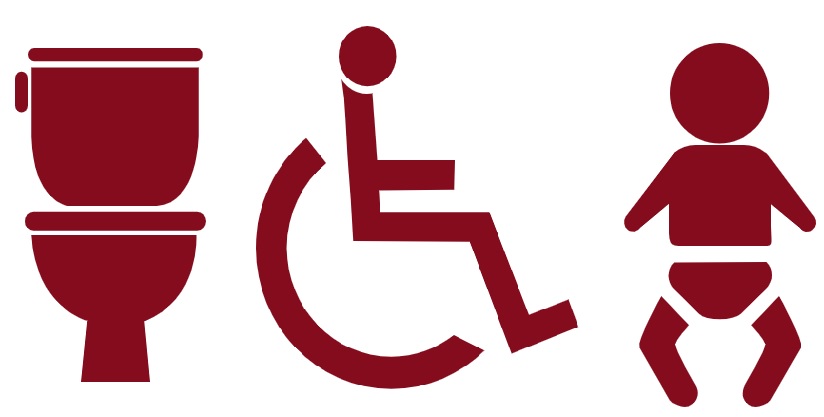 |
Informing others about your appointment with AWMGS
Will my GP be told about my appointment/results?We routinely inform your GP as they will be involved in your ongoing care. If you have a reason that you do not wish for them to be informed, you should discuss this in your clinic appointment.
|
|
Do I have to tell my family anything?You do not have to tell your family about your appointment or results, but it is often best to let them know. In some cases a genetic diagnosis may have implications for the wider family and this will be discussed in the clinic. Sometimes we will contact you before the clinic to ask about genetic testing and it might be helpful to ask your relatives if they have had testing in the past.
|
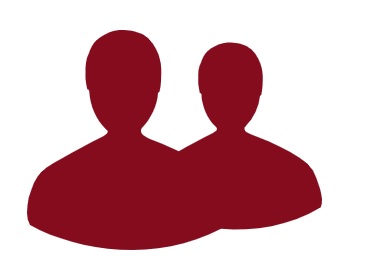 |
What will you do with my information?To find out more about how we use your information, please click here.
|
|
Can I see my medical records?Yes, you can view the information we have either on computer or in paper record.Please ask us to send you a copy by writing to:
|
Genetic Testing
I'm worried about the results, what should I do?You can discuss this with the clinician who organised the test. A contact number should have been given to you in clinic and/or included in your letter. |
 |
How will I get my results?The person who arranges the test will discuss how you would like to receive your results. You will always have the option of a follow up appointment at a later date to discuss the results in more detail, if you wish.When will I find out my results?It depends on the condition and the type of test you have had. The person arranging the test will give you a time frame of when your results can be expected. |
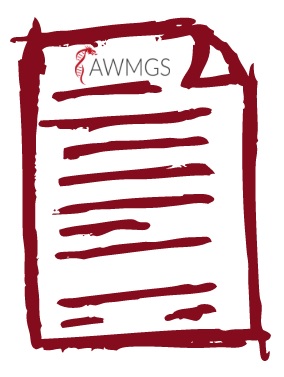 |
Prenatal Testing
I'm pregnant and concerned my child might inherit a genetic condition that is in the family. What should I do?You should make your GP or midwife aware as soon as possible. They may suggest a referral to our prenatal genetics service. If you are referred to us, you will be contacted quickly and offered an appointment if required. Please also see the prenatal genetics. |
|
Antenatal scans have identified my baby has some problems, could it be genetic?This depends on what has been found on the scans. You should discuss this your midwife and/or obstetrician. If they think there may be a genetic cause, they might offer you a genetic test during the pregnancy. You won’t necessarily need to be seen by the AWMGS. Please also see the prenatal genetics.
|
|
We are planning to have a family. Is it possible to stop the genetic condition in the family being passed on?This depends on the condition and we need to know the exact genetic change in the family. There is a type of modified in vitro fertilisation (IVF) treatment called pre-implantation genetic diagnosis (PGD), which can stop the alteration being passed on. For Welsh patients, this currently means travelling to a specialist clinic in London. The treatment can be funded through the NHS, but there are a number of criteria which mean funding is not always possible for a family. If you would like to discuss this further, then ask one of your healthcare team to refer you to the AWMGS. More information on PGD can be found at the Guy’s and St Thomas’ website.
|

